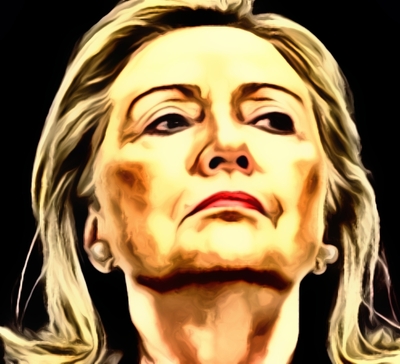
It was not a tricky question, but Hillary Rodham Clinton found a way to make it so. Toward the end of the latest Democratic presidential debate over the weekend, she was asked about the rash of campus protests and whether she would encourage more of them. Clinton, who had plenty of stories of her work with activists, decided to go with biography.
"I come from the '60s, a long time ago," she told moderator John Dickerson. "There was a lot of activism on campus."
Republicans spotted an opportunity. A spokesman for Sen. Marco Rubio (R-Fla.) demonstrated just how easily a 44-year-old Cuban American could outflank a 68-year-old baby boomer.
"Debate recap," tweeted Rubio spokesman Alex Conant. "Clinton: 'I come from the '60s, a long time ago.' Marco: 'This election is about the future.' "
It was one of a series of potential missteps by Clinton that could become fodder for damaging attacks against her, both in the primary season and the general election.
Clinton had delivered an otherwise strong debate performance, navigating a first hour almost entirely dedicated to foreign policy. But at key moments, she appeared to step on her own momentum.
First, she and other Democrats on the stage refused to say the words "radical Islam," another moment immediately seized upon by Republicans. Then she invoked the Sept. 11, 2001, terrorist attacks to defend herself against a critique of her cozy relationship with Wall Street from Sen. Bernie Sanders (Vt.) - and was roundly criticized on Twitter.
Finally, as the debate came to a close, Clinton delivered the made-for-TV sound bite about the '60s, pegging herself as the opposite of the fresh face that many voters are looking for.
The missteps are emblematic of a concern that has dogged Clinton's candidacy. Several times, she has come up with a sharp line to close the door on a political problem, only to get stuck with splinters.
If October's Democratic debate represented Clinton's escape from a summer of scandal and declining poll numbers, Saturday's represented the downside of front-runner status. It was no longer good enough for Clinton to "win" an exchange. A maladroit answer could be mined for gaffes by Republicans who expect to see Clinton on the ballot in November 2016.
Even the sleepy timing of the debate led Republicans to say that Democrats were trying to protect a candidate who sometimes wilts in the spotlight. Nearly 7 million fewer people tuned into the broadcast compared with the October debate on CNN.
[Democrats debate Islamic State and Wall Street, but Clinton is the focus]
By Sunday morning, conservative Web sites had cut multiple competing videos of the 1960s remark, their only disagreement coming over whether to add a clip from "Back to the Future" or a lava lamp. "I can guarantee that this will appear in some ad at some point," said pollster Frank Luntz. "Nobody, Republican or Democrat, wants to vote for a candidate from the 1960s when we're well into the 21st century."
Opponents jumped on the other moments, too. On ABC News's "This Week," Rubio said that by refusing to say the words "radical Islam," Democrats are "saying we weren't at war with the Nazis, because we were afraid to offend some Germans who may have been members of the Nazi Party but weren't violent themselves."
The 9/11 comment came in response to Sanders's attacks on her willingness to accept Wall Street donations. Clinton noted that the terrorist attacks in Lower Manhattan came nine months into her tenure as junior senator from New York.
"Where were we attacked? We were attacked in downtown Manhattan where Wall Street is," Clinton said, with a passion that almost suggested that the question was out of line. "I did spend a whole lot of time and effort helping them rebuild."
"That was good for New York. It was good for the economy and it was a way to rebuke the terrorists who had attacked our country," she added.
The answer did not rebut Sanders's point, that Clinton might be beholden to special interests because she has accepted millions from the financial industry. On Twitter and Facebook, the moment became the most-talked-about exchange of the debate - and not to her benefit.
Clinton "vehemently offers support for Wall Street as post-911 recovery effort. Does that fly?" former Obama adviser David Axelrod asked on Twitter.
It didn't help that during the event, a biting follow-up question came from social media. "I've never seen a candidate invoke 9/11 to justify millions of Wall Street donations until now," wrote Andy Grewal, a law professor at the University of Iowa.
In other words, explained CBS moderator Nancy Cordes: "What does that have to do with taking big donations?"
For a moment, Clinton paused, seemingly stunned by the implication that she had politicized the 2001 terrorist attacks. Then, she apologized.
"Well, I'm sorry that whoever tweeted that had that impression," Clinton said.
Saturday's gaffes were reminiscent of one from January 2013, when Clinton first testified before Congress on the 2011 terrorist attacks in Benghazi, and Sen. Ron Johnson, R-Wis., kept asking why her the State Department had tied the violence to "spontaneous" protests rather than labeling it terrorism. Clinton, exasperated, famously responded: "What difference - at this point, what difference does it make?" Her critics cited it as evidence that she couldn't have cared less how four Americans died.
She tried something similar last year. Challenged by ABC News's Diane Sawyer on her post-administration speaking fees, Clinton said that her family "came out of the White House not only dead broke, but in debt," and "struggled to piece together the resources for mortgages for houses, for Chelsea's education."
Financial records backed that up, but the line clunked so badly that the conservative American Crossroads ended up showing it to focus groups of women in swing states.
Now, Republicans believe they have a new round of ammunition. Party chairman Reince Priebus called Clinton's remarks on 9/11 a "new low" and a "bizarre attempt to deflect attention from her ties to her wealthy donors."
The answer was not as bite-sized or as easily weaponized as the "1960s" comment. But it made for uncomfortable headlines and evoked two of the weaknesses that Republicans like to cite to pit Democrats against their front-runner. Foreign policy was as much of a sticking point as financial donations. Thirteen years earlier, she had voted for the authority to invade Iraq from "the perspective of a senator from New York who has seen all too closely the consequences of (2001's) terrible attacks on our nation."
Clinton did not revisit her Wall Street remarks in an address to central Iowa Democrats on Sunday, where she was accompanied by former president Bill Clinton. And although former Maryland governor Martin O'Malley lamented her tendency to commit gaffes - "does she have to keep giving them so much ammunition?" - Democrats in Iowa who watched the Saturday debate said they were unfazed by the 9/11 flap.
"I wasn't bothered by it. I didn't see it as a gaffe," said Sue Seedorff-Keninger, 62, who hasn't decided which candidate she will caucus with. "I saw it as an explanation for why she received money from them."
Clinton's campaign communications director, Jennifer Palmieri, dismissed the comment and fallout from it as remote to voters.
"I don't think this is something that caucus-goers in Iowa or voters are going to care about," Palmieri told reporters. "I think what they are really going to care about is that she's focused on raising incomes for the middle class" and other pocketbook issues.
After the debate, the Sanders team appeared to make a conscious decision to lay off Clinton on the 9/11 remark. One of his advisers, Tad Devine, told reporters that he would leave it to others to assess the comments.
"Then-Sen. Clinton did a great job representing her state at a time of terrible tragedy in New York on 9/11, and we're not joining in the characterization of her comments," Devine said, instead seeking to focus on the "big substantive differences" between the two on how they would regulate Wall Street.
That's where author and liberal firebrand Cornel West took the conversation. Filling in for Sanders at the same event where Clinton and O'Malley appeared Sunday, West landed a sharp dig at "my dear sister Hillary Clinton."
"I took Wall Street money but it didn't affect me?" he said, paraphrasing Clinton's remarks at the debate.
"I say, I was born at night but not last night."
Comment by clicking here.


 Contact The Editor
Contact The Editor
 Articles By This Author
Articles By This Author
